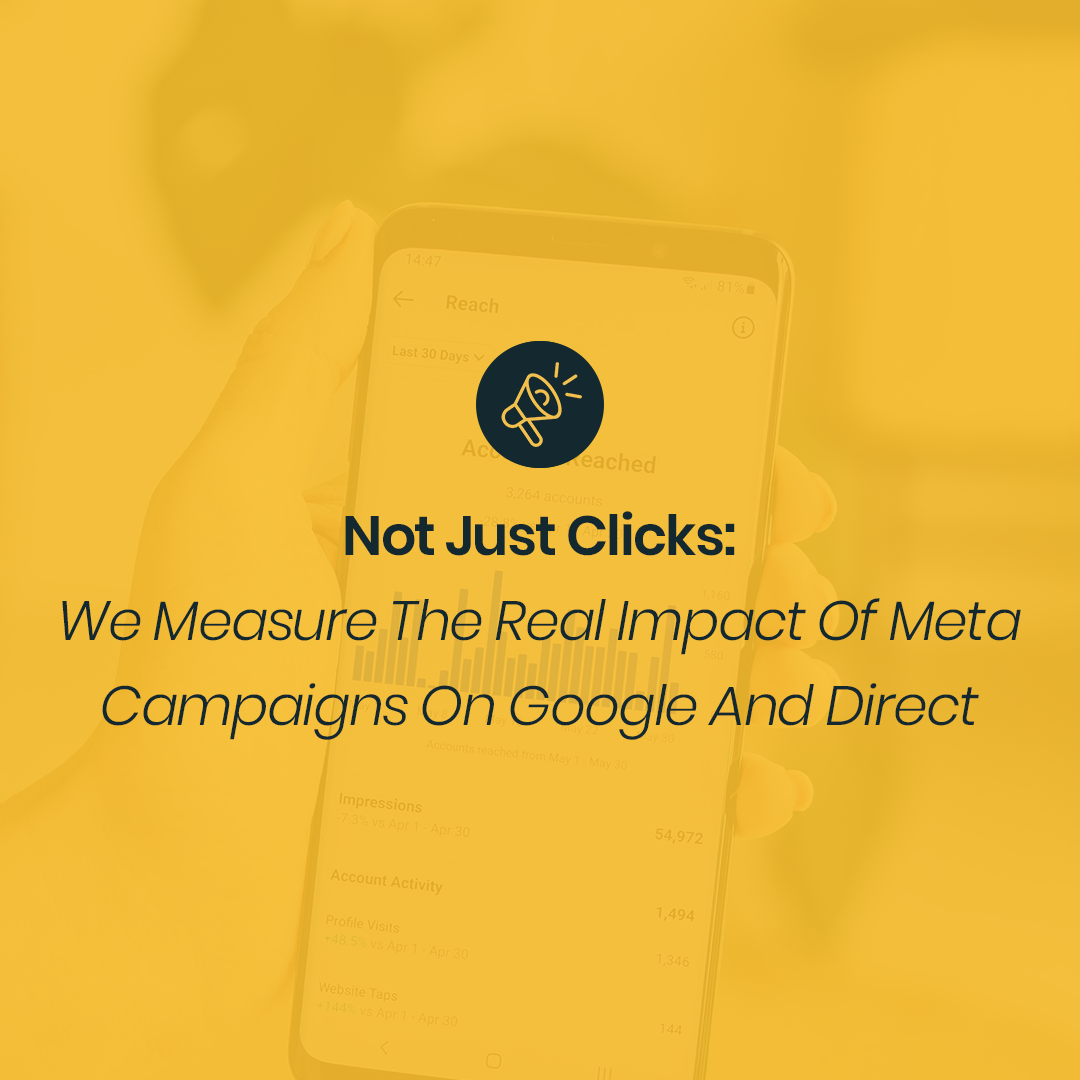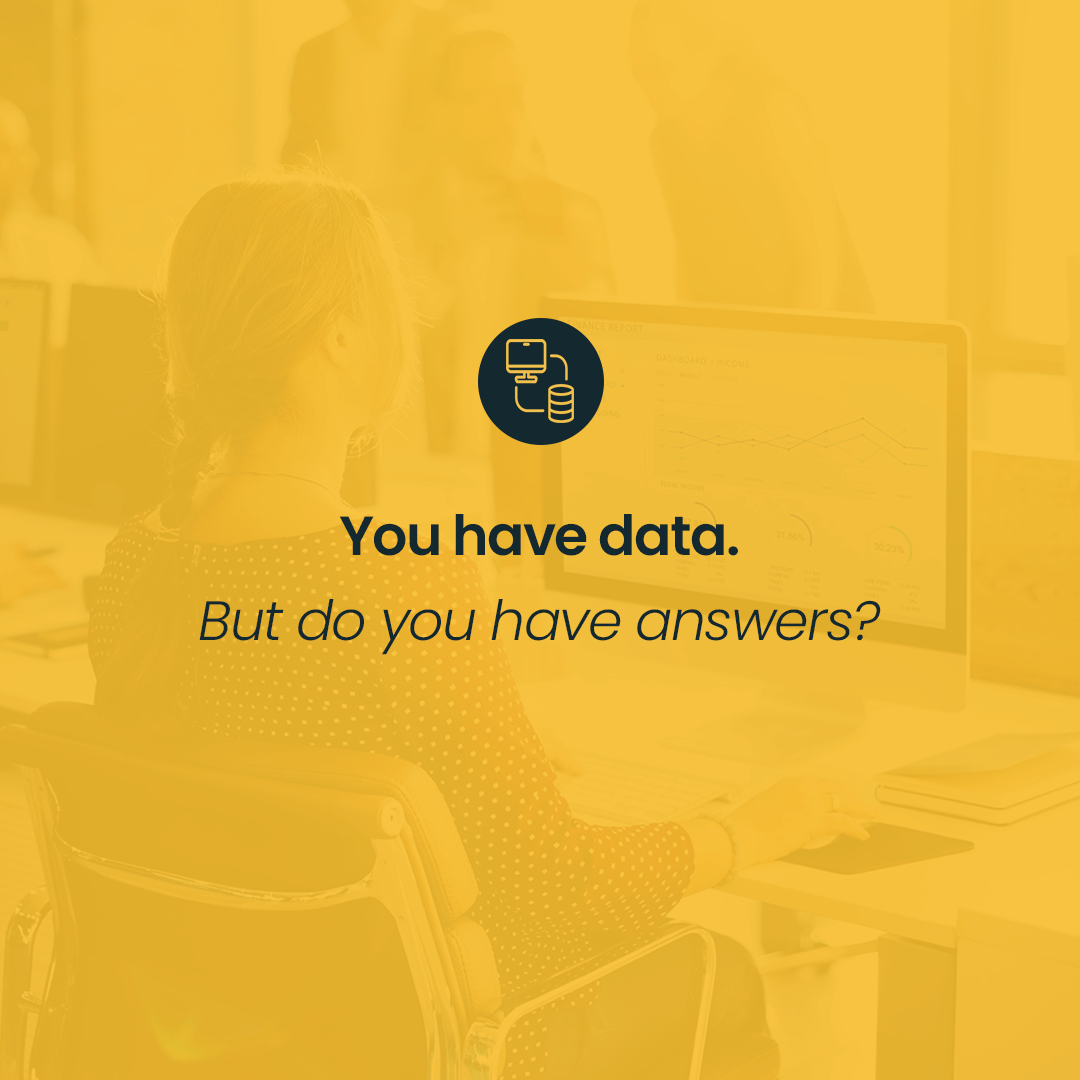The end of third-party cookies. What next?
Digital marketing is facing one of the biggest transformations of recent years. Browsers - Safari, Firefox, Chrome - are gradually phasing out support for third-party cookies. For marketers, this means real limitations in targeting, retargeting, and measuring campaign effectiveness, especially if they have so far relied on user-level data and last-click models.
The effects? A 20–30% drop in publisher revenue, only 15% of marketers ready for the shift, and an urgent need for a new way to measure effectiveness. More and more companies are turning to first-party data, and the industry as a whole is beginning to shift from tracking individual users to aggregated analysis compliant with privacy regulations.
This raises questions:
How do we measure the effectiveness of marketing activities now?
How do we make budget decisions without a picture of the full customer journey?
The solution may be econometric modeling (Marketing Mix Modeling) - specifically its new generation: Google Meridian.
Why is classic analytics no longer enough?
In a world without cookies, traditional attribution models such as last-click or MTA (multi-touch attribution) start to fail. Without tracking data, over 95% of users remain anonymous, creating “dark zones” in the conversion path.
GA4 data is only part of the puzzle, though. It lacks the impact of offline activities, branding campaigns, or contextual variables (e.g., weather, inflation).
Even the best CDP or CRM won’t answer questions like:
How much did the TV campaign really deliver?
Did display ads build awareness that translated into in-store sales?
Which channel is worth additional funding, and which brings diminishing returns?
The lack of standardized cookies makes it harder to integrate data across sources, and relying on identity tracking without full GDPR compliance adds legal risk.
Can marketing mix modeling and Meridian be a remedy?
Marketing Mix Modeling (MMM) is a statistical technique that measures the impact of marketing activities on KPIs (e.g., sales, leads), based on aggregated data rather than user-level data. Thanks to this, it is GDPR-compliant and resistant to technological changes.
Meridian, developed by Google, is a next-generation open-source MMM platform. It takes into account:
The impact of various channels (online and offline)
Phenomena such as media saturation or delayed conversion effects (adstock)
External factors: seasonality, economic situation, competitors’ actions
Media data, such as YouTube Reach, Google Search Trends, or data from DOOH campaigns
It works without cookies and provides more accurate insights than traditional tools into what’s truly driving performance.)
How does Meridian support measuring campaign effectiveness?
Google Meridian is a strategic platform that provides marketers with practical insights to optimize campaigns in a privacy-centric world.
Thanks to the use of Bayesian statistics and a causal approach, Meridian makes it possible to answer questions key to anyone managing a marketing budget:
Which channels really influence KPIs despite a lack of clicks?
What ROI can I expect under different budget scenarios?
What is the marginal return on investment in a given channel?
Where are the media already saturated, and where do they still have potential?
If I shift budget from Meta to TikTok, or from display to TV, how will it affect results?
Meridian measures the effectiveness of channels from all stages of the sales funnel, also taking into account non-marketing factors such as seasonality or the impact of the socio-economic environment. It operates at the global, regional, and channel levels, which allows for analyzing effectiveness both broadly (the entire mix) and very granularly (e.g., comparing specific paid social channels with each other).
Most importantly, Meridian is based on aggregated data, so it doesn’t rely on cookies or user tracking.
Why is this better than classic attribution models?
Google Meridian, as a Marketing Mix Modeling (MMM) tool, represents a completely different approach to measuring effectiveness than classic attribution models. In place of user tracking, it uses aggregated, GDPR-compliant data that is resistant to browser blocks.
MMM makes it possible to see the full picture of marketing activities, both online and offline, also taking into account external factors (e.g., seasonality, inflation) and long-term effects (adstock). It models channel saturation and diminishing returns, enabling smarter budget planning.
Attribution is still useful for tactical campaign optimization, but if you want to make strategic budget decisions in a world without cookies, Meridian becomes the new standard.
Feature | Last Click attribution | Multi-Touch attribution | Meridian (MMM) |
Requires cookies | Yes | Yes | No |
Includes offline campaigns | No | No | Yes |
Works after data is disabled | No | No | Yes |
Requires user-level data | Yes | Yes | No |
When is it worth implementing Meridian?
Google Meridian is particularly valuable for companies striving for strategic and comprehensive marketing measurement in the cookie-less era, especially if they:
Invest in multichannel campaigns, both digital and offline (TV, radio, OOH).
Aim to optimize the budget for ROI, not just cost per click.
Want to understand the full impact of campaigns - on sales and brand awareness - not just know what “worked.”
Need a GDPR-compliant analytical model that does not rely on user data.
Strive to automate the marketing budget and want to test “what-if” scenarios.
Measuring effectiveness in the cookie-less era
Third-party cookies will soon be a thing of the past, but that doesn’t mean the end of marketing measurement.
Google Meridian is a solution that allows you to maintain (and often gain) control over campaign effectiveness without violating user privacy, without data patchworks, without guessing.
It’s a tool that speaks the language of data, not clicks.
It’s time to move from intuition to evidence.
From tracking the user to understanding the impact of campaigns.
From “it works/doesn’t work” to “why and what next.”
Ready to measure more effectively, even without cookies?
If your company is facing the limitations of classic analytics and you want to check whether econometric modeling (MMM) using Google Meridian is a good solution - get in touch with us. 👇
We will assess the potential of implementing Meridian in your organization free of charge.
We will present clear, non-binding recommendations tailored to your business.
We can carry out a full implementation—from data to ready-to-use reports.
We work with both marketing and analytics teams.
👇 Don’t guess. Plan with data.
Sources:
How Third-Party Cookies Deprecation Affects Programmatic Ecosystem | Adtelligent, accessed on July 8, 2025, https://adtelligent.com/blog/ad-tech-insights/how-third-party-cookies-elimination-will-affect-programmatic-ecosystem/
Why aren't many people freaking out about 3rd party cookie depreciation? : r/adops - Reddit, accessed on July 8, 2025, https://www.reddit.com/r/adops/comments/19fawqk/why_arent_many_people_freaking_out_about_3rd/
Attribution will be challenging — but not impossible — in a cookieless world | Marketing Dive, accessed on July 8, 2025, https://www.marketingdive.com/news/attribution-will-be-challenging-but-not-impossible-in-a-cookieless-worl/596303/
Cookieless attribution: Everything you need to know - Usermaven, accessed on July 8, 2025, https://usermaven.com/blog/cookieless-attribution
GA4 Attribution Models: Limitations and Solutions for Physical Stores and Offline Marketing, accessed on July 8, 2025, https://dataslayer.ai/blog/ga4-attribution-models-limitations
Marketing Mix Modeling vs. Attribution - OptiMine, accessed on July 8, 2025, https://optimine.com/blog/attribution-vs-marketing-mix-modeling/
About Meridian | Google for Developers, accessed on July 8, 2025, https://developers.google.com/meridian/docs/basics/about-the-project
Marketing Mix Modeling: Everything You Need to Know - Analytic Edge, accessed on July 8, 2025, https://analytic-edge.com/blog/what-is-marketing-mix-modeling/
The Benefits of Using Marketing Mix Modeling to Optimize Marketing Strategies, accessed on July 8, 2025, https://nextbrain.ai/blog/the-benefits-of-using-marketing-mix-modeling-to-optimize-marketing-strategies
What is Marketing Mix Modeling (MMM)? A Complete Guide for 2025 - Lifesight, accessed on July 8, 2025, https://lifesight.io/blog/marketing-mix-modeling-mmm/
Decoding Marketing Mix Modeling: A Complete Guide - DataCamp, accessed on July 8, 2025, https://www.datacamp.com/tutorial/decoding-marketing-mix-modeling-a-complete-guide
Marketing Mix Modelling versus Attribution Modelling: What is the difference and why you should know it - Marketingintelligence.io, accessed on July 8, 2025, https://marketingintelligence.io/mmm-vs-mta/
Google Meridian: What you need to know - Impression Digital, accessed on July 8, 2025, https://www.impressiondigital.com/blog/google-meridian-what-you-need-to-know/
Marketing mix modeling - Wikipedia, accessed on July 8, 2025, https://en.wikipedia.org/wiki/Marketing_mix_modeling
Battle of Models: MMM vs. MTA - Adsmurai, accessed on July 8, 2025, https://www.adsmurai.com/en/articles/mmm-vs-mta
Marketing Mix Modelling implementation : r/marketing - Reddit, accessed on July 8, 2025, https://www.reddit.com/r/marketing/comments/1lrsrqp/marketing_mix_modelling_implementation/






